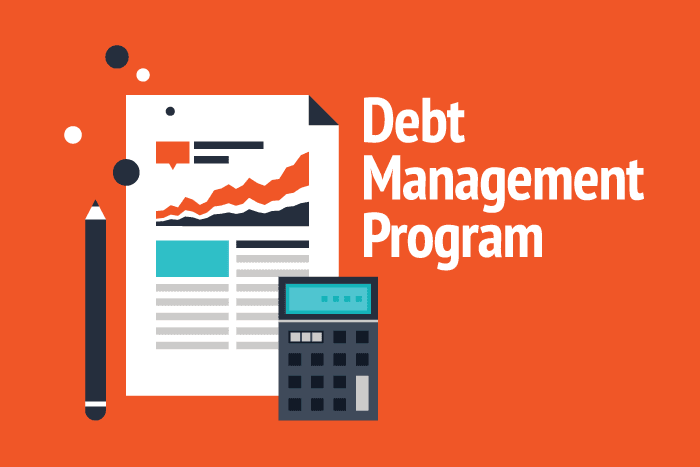Exactly How Debt Management Plan Services Offer Tailored Solutions for Financial Health And Wellness
Exactly How Debt Management Plan Services Offer Tailored Solutions for Financial Health And Wellness
Blog Article
Expert Tips and Strategies for Carrying Out a Successful Debt Monitoring Strategy
When it comes to navigating the complexities of debt monitoring, having a well-thought-out plan is critical for achieving financial stability. From examining your current monetary standing to negotiating with financial institutions, each step plays an essential duty in shaping an effective debt administration strategy.
Analyzing Your Existing Financial Situation
Before embarking on a financial obligation monitoring plan, it is crucial to completely examine your present monetary standing. Understanding your monetary situation is the foundational step in the direction of properly managing and lowering your debt.

Establishing a Realistic Spending Plan
Understanding your present economic circumstance lays the foundation for establishing a reasonable budget plan that aligns with your financial obligation management objectives and economic capacities. When developing a spending plan, it's essential to precisely track your earnings, costs, and financial debt commitments. Start by detailing all income sources, consisting of incomes, benefits, and any kind of additional profits. Next off, describe your fixed costs such as rent or mortgage payments, energies, insurance policy, and financing repayments. Variable costs like grocery stores, enjoyment, and transportation must also be made up. By classifying your expenses, you can recognize locations where you might require to reduce to maximize funds for financial debt repayment.

Prioritizing and Dealing With Debts
To successfully gain back control of your funds and job towards financial stability, focusing on and tackling your financial obligations is an important action in your financial debt administration strategy. Beginning by noting all your financial obligations, consisting of bank card, fundings, and any type of various other exceptional balances. Identify high-interest financial obligations that are costing you the most money and prioritize paying them off first. By focusing on these high-interest financial obligations, you can conserve money over time and decrease the overall amount you owe.
After determining your high-interest debts, think about utilizing approaches like the debt snowball or financial obligation avalanche approach to pay them off systematically. The financial debt snowball technique includes paying off the tiniest financial debts first, while the debt avalanche method focuses on debts with the highest rates of interest. Select the method that aligns best with your economic objectives and inspires you to keep making progression.
Furthermore, consider discussing with financial institutions for reduced rates of interest or establishing a layaway click to read more plan if you're struggling to satisfy your present commitments. Looking for aid from a credit history therapist or monetary advisor can likewise supply valuable insights and advice on exactly how to properly tackle your financial obligations - debt management plan services. By focusing on and resolving your financial obligations strategically, you can pave the way towards a debt-free future and enhanced monetary health
Negotiating With Lenders
When engaging in financial obligation administration, negotiating with creditors is a critical action towards locating equally useful options for financial obligation payment. Before starting negotiations, it is necessary to have a clear understanding of your economic situation, including your income, costs, and the overall quantity of financial debt owed.

Structure Healthy And Balanced Economic Habits
Incorporating constant budgeting practices is crucial for cultivating healthy economic practices. Budgeting enables individuals to track their revenue and expenses, enabling them to make informed choices about their financial top priorities. Establishing certain financial goals, such as conserving for emergency situations or retired life, can give a clear roadmap for managing money efficiently.
Another secret aspect of building healthy economic habits is living within one's ways. This entails spending less than what is gained and staying clear of unnecessary financial obligation. Distinguishing and embracing a prudent frame of mind between wants and needs can aid people make more prudent costs options.
Frequently assessing financial statements and keeping track of credit scores records are critical habits that promote monetary awareness and obligation. By remaining notified about why not try here their economic standing, individuals can identify possible concerns at an early stage and take aggressive steps to address them.
Furthermore, establishing a savings routine, also with percentages, can contribute dramatically to long-lasting financial protection. Conserving routinely not just develops a financial pillow for unexpected expenditures but additionally cultivates a feeling of technique and responsibility in the direction of money administration. By continually practicing these routines, individuals can lay a solid structure for a steady financial future.
Conclusion
To conclude, applying an effective financial debt administration plan requires a detailed assessment of one's financial scenario, the advancement of a reasonable budget, prioritizing and tackling debts, negotiating with financial institutions, and building healthy and balanced monetary behaviors (debt management plan services). By complying with these expert ideas and approaches, individuals can take control of their financial resources and work towards achieving monetary stability and flexibility from financial obligation
Comprehending your existing economic situation lays the groundwork for developing a reasonable spending plan that lines up with your financial debt management goals and monetary abilities.To successfully gain back control of your finances and work in the direction of economic stability, prioritizing and tackling your financial obligations is an essential action in your financial obligation administration plan.After identifying your high-interest financial debts, think about making use of approaches like the financial obligation snowball or financial obligation avalanche technique to pay them off systematically. The debt snowball method entails paying off the tiniest financial obligations first, while the financial debt avalanche method focuses on financial debts with the highest possible passion rates.When involving in financial obligation monitoring, negotiating with lenders is a crucial action in the direction of finding mutually useful solutions for debt payment.
Report this page